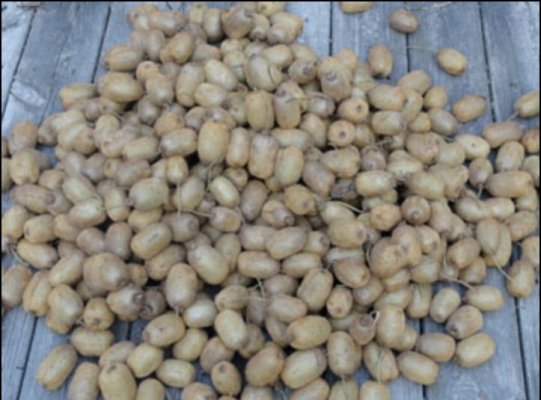larry_stewart
Master Chef
A few weeks back I went apple picking. It has become an annual tradition to go apple picking and make homemade apple cider ( I have a hand cranked apple cider press).
We are always left with a significant amount of apple scraps as a result of the process. Initially, I would feed the scraps to the chickens, some in the compost and last year I made homemade apple wine ( which I wouldn't say was great, maybe not even good, but the process was fun.
This year, I decided to make apple cider vinegar. The process couldn't have been any simpler.
- Load a jar 3/4 with apple scraps ( peels, cores ...)
- Fill the jar up with sugar water ( 1 tbs sugar / cup of water)
- Make sure the apple scraps are completely submerged
- Cover with coffee filter / rubber band so it an breath.
- Let it sit in a warm/ dark place for 2 weeks ( I placed mine in the boiler room)
- Filter out the liquid in 2 weeks
- Cover with coffee filter/ rubber band and let the liquid sit another 2 - 4 weeks until desired taste.
Well, today was just shy of the 2 weeks the liquid sat, and it tasted great. not as concentrated as store bought vinegar, but really good and fresh tasting.
This is the site I used to make the vinegar
https://www.theprairiehomestead.com/2015/02/how-to-make-apple-cider-vinegar.html
We are always left with a significant amount of apple scraps as a result of the process. Initially, I would feed the scraps to the chickens, some in the compost and last year I made homemade apple wine ( which I wouldn't say was great, maybe not even good, but the process was fun.
This year, I decided to make apple cider vinegar. The process couldn't have been any simpler.
- Load a jar 3/4 with apple scraps ( peels, cores ...)
- Fill the jar up with sugar water ( 1 tbs sugar / cup of water)
- Make sure the apple scraps are completely submerged
- Cover with coffee filter / rubber band so it an breath.
- Let it sit in a warm/ dark place for 2 weeks ( I placed mine in the boiler room)
- Filter out the liquid in 2 weeks
- Cover with coffee filter/ rubber band and let the liquid sit another 2 - 4 weeks until desired taste.
Well, today was just shy of the 2 weeks the liquid sat, and it tasted great. not as concentrated as store bought vinegar, but really good and fresh tasting.
This is the site I used to make the vinegar
https://www.theprairiehomestead.com/2015/02/how-to-make-apple-cider-vinegar.html
Last edited:

